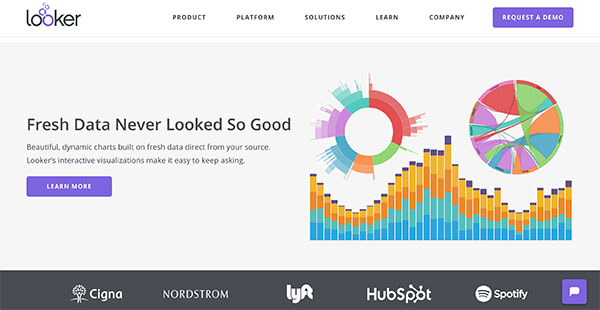What is a business relationship manager?
A business relationship manager (BRM) acts as a liaison between IT and other business units in the organization. As departments rely on technology, organizations often find that they need to establish stronger communication between IT and outside business units. The BRM role is typically a senior-level position, for which candidates need a wide range of experience, hard and soft skills and education to fill the job requirements.
The business relationship manager role
As a BRM, you will need a deep understanding of the IT department, but you will also need to understand and understand the requirements. You'll be in touch with IT, HR, finance, marketing, and other departments that rely heavily on technology for daily business. BRMs can work at a high-level, overseeing the relationship between IT and multiple departments or they can work in a specific business unit as between IT and another department.
BRMs are integral to organizations that are trying to 'drive towards collaboration and a culture of creativity, innovation and value that reflect the business strategy as a whole,' according to the BRM Institute. It's a vital role for companies that have traditionally kept IT separate from the rest of the organization, operating as an independent department. BRMs are helping to break down silos to create a more holistic IT department.
Business relationship manager job description
While job descriptions and responsibilities may vary between organizations and industries, these are the general responsibilities of a BRM, according to BRMInstitute:
Coach business leaders on how to communicate to business.
Develop multi-year business capability roadmaps with enterprise architecture.
Review requirements with change management and business transformation teams.
Develop a 'healthy and well-managed portfolio initiative' with the project, program or portfolio management organization (PMO).
Communicate with business leadership to evaluate joint ventures and proposals to see how they align with established roadmaps and business priorities.
Identify business value when developing ideas with a focus on digital awareness, risk assessment, business continuity and business capability requirements.
Identify strategic business function opportunities both long-term and long-term adoption across the country.
Build and manage a team to oversee 'convergence and strategic partnering' across the organization, including executive and senior leadership.
Engage with project and program leads to a better understanding of joint strategic efforts.
Maintain creativity and innovation
Ensure joint initiatives are set up for success and align with the corporate strategy.
Business relationship manager skills
Successful BRM needs a wide range of soft skills, but you will also understand the IT side of the business. You will be tasked with leading people, communicating with executive leadership and bridging gaps between IT and other business units.
According to BRMInstitute, the most important skills for a business relationship manager include:
Relationship-building
Strategic thinking
Assertiveness and diplomacy
Energy and Focus
Strong communication skills
Highly skilled Negotiating and problem-solving skills
Leadership skills
Ability to collaboratively be and to encourage cooperation
Ability to Focus on Business value results INSTEAD of solutions
Ability to Positively influences others and to break organizational silos
Strong writing, speaking and presenting skills
Strong understanding of IT, HR and finance
Becoming a business relationship manager
To become a BRM, you will need at least a bachelor's degree in business, IT, finance, accounting, economics or business administration. Depending on the level, some positions will also require an MBA or equivalent graduate-level degree; some companies might also accept professional educational certificates.
If you're just getting started in your career, you'll want to look for entry-level and junior-level BRM positions. It's likely that, even at the entry level, you'll need some work experience. But if you've worked in IT or in another relevant department, that will be valuable work experience for your resume. If you're more experienced in your career, you can look to more senior-level BRM positions that require a lot of experience.
Business relationship manager salary
The average salary for a business relationship manager is $ 85,995 per year, with a reported salary range of $ 55,000 to $ 135,000 per year, according to data from PayScale. (29%), IT management (28%), people management (24%), strategic planning (24%) and project management (17%).
Business relationship manager education and training
While you'll need to - at the very least - a formal undergraduate education BRM, there are other ways you can get trained BRM skills and tools. Whether you're trying to make a career change to BRM or if you're interested in breaking into the industry after graduation, these courses and training programs will help you gain an edge on the competition.
You can find BRM training programs and bootcamps from the following vendors:
BRMInstitute
PinkElephant
Watermark Learning
APMG International
ITSM Academy
ITSM
International Institute for Learning Zone (IIL)
Learning Tree International
Business relationship manager certifications
The BRM is still a relatively new role for IT, but there are several certifications available from the BRM Institute. These include:
Business Relationship Management Professional (BRMP)
Certified Business Relationship Manager (CBRM)
Master of Business Relationship Management (MBRM)
The certification scheme consists of three leveled-certifications, with BRMP being the entry level certification. After you've earned your BRMP, you can move to the CBRM and then finally the MBRM levels. The MBRM certification is only an ounce of knowledge that has been gained above average knowledge in BRM. These certifications will help validate your knowledge and skills in BRM, while also letting you know your experience.
This article first appeared on CIO and was written by Sarah K. White and can be found here.




































